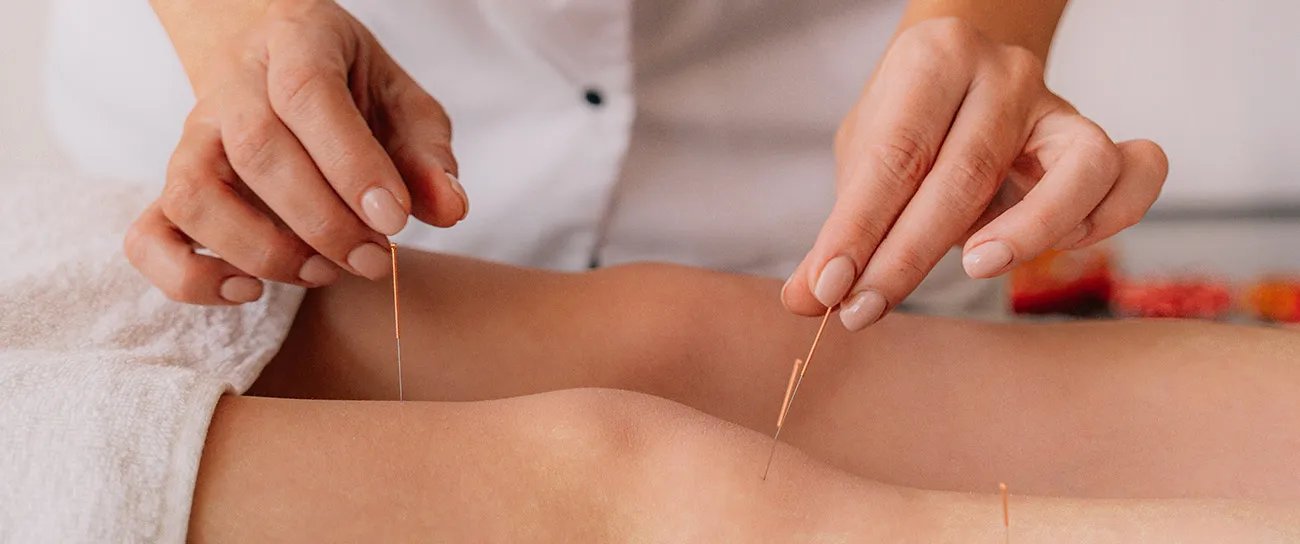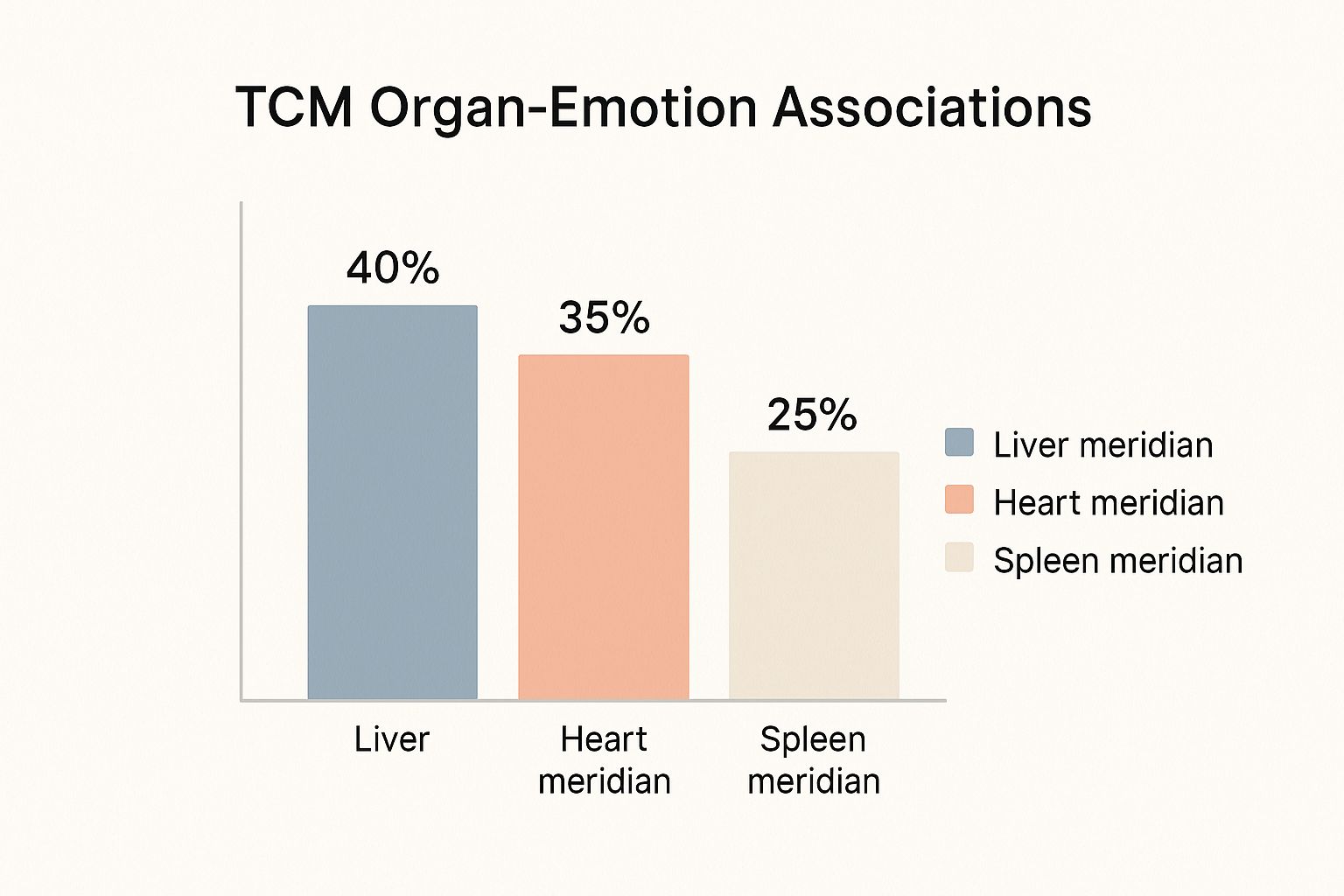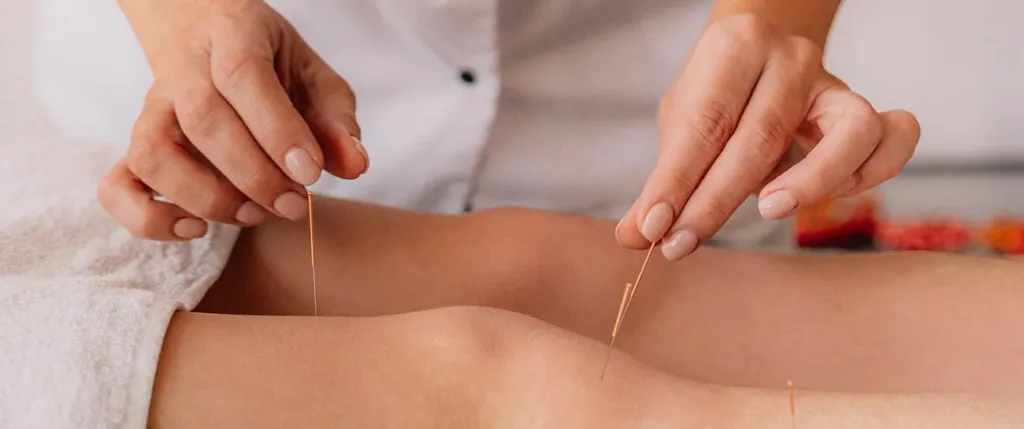Acupuncture is a holistic healing method that many individuals turn to for relief from the debilitating feelings associated with stress and anxiety. This ancient practice involves the meticulous insertion of ultra-fine, sterile needles into specific points across the body, with the aim of activating the body's innate healing processes. This activation fosters a deep sense of calm and relaxation, which numerous individuals find advantageous in their wellness journeys. By addressing the underlying causes of discomfort, acupuncture offers a pathway to emotional equilibrium and physical wellness.
Discover How Acupuncture Promotes Emotional Wellness by Reducing Stress and Anxiety

Stress and anxiety pose significant challenges in modern Australian society, affecting individuals across diverse demographics. When these emotions persist, they can disrupt daily activities and reduce life quality. Consequently, many people are seeking effective strategies to regain control over their mental health and overall wellbeing. For countless Australians, the integration of acupuncture into their holistic health regimen has become a crucial aspect of their pursuit of comprehensive wellness and emotional balance.
Grounded in the principles of Traditional Chinese Medicine (TCM), acupuncture seeks to promote the unobstructed flow of energy, referred to as Qi, throughout the body. Recent scientific studies indicate that stimulating specific acupuncture points may positively influence the nervous system, helping to regulate the body’s natural stress responses commonly known as the ‘fight or flight’ reaction. This regulation is essential for managing the physiological symptoms tied to elevated stress levels.
Incorporate Acupuncture as a Key Element of Your Holistic Wellness Plan
Recognising acupuncture as a complementary element within a broader wellness framework can significantly enhance its effectiveness. A qualified practitioner often suggests it as a vital component of a holistic approach aimed at achieving optimal health and wellbeing. This multi-dimensional strategy generally involves cooperation with your general practitioner (GP) or a mental health professional, in addition to making beneficial lifestyle changes that align with your individual needs.
Essential lifestyle adjustments might encompass:
-
Participating in regular physical activity to elevate your mood and energy levels, which can help mitigate feelings of stress.
-
Prioritising restorative sleep and adopting relaxation techniques to improve recovery and resilience.
-
Maintaining a balanced diet rich in essential nutrients to bolster mental health and overall physical wellness.
Acupuncture is frequently integrated into various health strategies. The primary aim is not merely to alleviate symptoms but also to strengthen your body's inherent systems and enhance resilience against stress, promoting long-term wellbeing.
To clarify these essential concepts, the following table highlights the key components of acupuncture's role in health and its holistic advantages.
Essential Principles for Understanding the Health Benefits of Acupuncture
|
Concept |
Brief Explanation |
|---|---|
|
Traditional Chinese Medicine (TCM) |
A holistic health system that perceives the body as an interconnected whole, where physical and emotional wellbeing are interrelated, acknowledging the influence of each element on the other. |
|
Qi (pronounced ‘chee’) |
The vital energy or life force flowing through the body along meridians, crucial for sustaining health and vitality. |
|
Acupuncture Points |
Specific locations on the body where Qi can be accessed and manipulated to enhance health and functionality, restoring balance and harmony. |
|
Nervous System Regulation |
Modern research indicates how acupuncture may assist in calming the body's stress response, offering a natural means of promoting relaxation. |
Understanding these foundational principles simplifies the comprehension of how a tailored treatment plan unfolds in practice, emphasising the interconnectedness between the mind and body.
What Can You Expect During an Acupuncture Treatment Session?
Your first acupuncture appointment commences with an in-depth discussion. A qualified practitioner will invest time to understand your specific health concerns and goals before initiating any treatment, ensuring a personalised approach to your care.
Once you feel at ease, fine needles will be gently inserted at carefully chosen points on your body. Following this, you will have the chance to relax in a tranquil environment, allowing the effects of the treatment to manifest fully. This serene backdrop is crucial for maximising the therapeutic benefits of acupuncture.
In addition to the acupuncture procedure itself, your practitioner may introduce complementary therapies. For instance, insights into Chinese herbal medicine can provide a broader perspective on nurturing health from this traditional viewpoint. This integrated approach ensures that your care is tailored to your unique needs, assisting you on your journey toward enhanced wellbeing and holistic health.
Exploring the Widespread Effects of Stress Across Australia

It is widely acknowledged that stress and anxiety significantly permeate daily life for many Australians. The balancing act of work, family, and personal obligations can accumulate, leading individuals to seek effective strategies for managing their overall wellbeing. Recognising the prevalence of these emotions underscores why supportive therapies like acupuncture are gaining prominence in the realm of mental health support.
The statistics present a concerning narrative. According to the Australian Bureau of Statistics (ABS) report from 2017–18, 25% of Australians reported experiencing high or very high levels of stress. Notably, women reported higher levels (28.5%) compared to men (21.6%), highlighting the widespread need for effective support mechanisms in managing emotional health.
What Is the Relationship Between Mental Stress and Physical Symptoms?
The feeling of being ‘stressed out’ rarely exists solely in the mind. Chronic stress often manifests physically, prompting individuals to seek relief. The mind-body connection is a crucial aspect of understanding how stress affects overall health.
The Australian Psychological Society (APS) points out that 72% of Australians experiencing heightened stress levels also display physical symptoms. This statistic serves as a reminder of the intricate relationship between our mental and physical health. For further insights into the impacts of stress, visit healthinflow.com.au.
Common physical manifestations associated with ongoing stress include:
-
Persistent fatigue or a sense of being drained of energy, which can impede daily functioning.
-
Frequent headaches or migraines that disrupt daily activities and diminish quality of life.
-
Tightness in muscles, especially in the neck and shoulders, leading to discomfort and potential long-term issues.
When these physical symptoms become a routine part of life, it naturally compels individuals to seek effective solutions, often leading them to explore treatments such as acupuncture.
Recognising the link between emotional states and physical sensations is a significant step toward addressing holistic health. This understanding clarifies why a comprehensive approach to wellness, incorporating practices like acupuncture for stress and anxiety, can yield beneficial outcomes over time.
The growing need for effective stress management has ignited interest in a variety of supportive therapies. More individuals are exploring practices that complement their existing healthcare routines and address both the psychological and physical aspects of stress, creating a more balanced health approach.
Traditional Chinese Medicine Insights on Achieving Emotional Balance
Interpreting emotional wellbeing through the lens of Traditional Chinese Medicine (TCM) provides a distinctive viewpoint compared to conventional Western medicine. Rather than solely focusing on brain chemistry, TCM adopts a holistic perspective, recognising the body as an interconnected system where emotions and physical health are two facets of the same reality that influence one another.
Central to this philosophy is the concept of Qi (pronounced ‘chee’), which signifies the body’s vital energy or life force. This energy is meant to flow harmoniously through designated pathways known as meridians. When your Qi flows freely, you typically experience a sense of balance and overall wellness, positively contributing to your emotional state.
However, factors such as prolonged stress, overthinking, or sudden traumatic events can obstruct this flow, leading to stagnation. TCM often links this disruption to feelings associated with stress, irritability, or worry, highlighting the importance of maintaining Qi balance for emotional stability.
How Do Your Organs Affect Your Emotional Wellbeing?
Within TCM, specific organ systems are recognised as foundational for particular emotions. This perspective extends beyond the physical organs as described in anatomy textbooks; it encompasses broader functional networks that affect both physical and emotional health, illustrating the interconnected nature of our bodies.
When addressing issues related to stress and anxiety, two organ systems typically draw attention:
-
The Liver System: This system is vital in ensuring the smooth flow of Qi throughout the body. When Liver Qi becomes stagnant—often due to frustration or unresolved stress—it can manifest as irritability and tension headaches, indicating an imbalance that may require attention.
-
The Heart System: In TCM, the Heart is regarded as the home of the mind and spirit, known as the ‘Shen’. An imbalance within this system can lead to feelings of anxiety, restlessness, and disrupted sleep, resulting in poor sleep quality and emotional turmoil.
From this traditional perspective, addressing emotional imbalance is not about suppressing feelings; rather, it involves identifying areas where the Qi is obstructed and applying acupuncture to restore its free flow, facilitating emotional healing and resilience.
Grasping these core principles sheds light on why practitioners select specific acupuncture points. They employ distinct diagnostic methods to identify patterns within your body. For a deeper understanding of how this diagnostic process operates, refer to our guide on TCM diagnostic methods.
What Does Modern Research Indicate About Acupuncture and Anxiety Management?
While Traditional Chinese Medicine offers a rich, time-honoured framework for emotional health, contemporary science is beginning to catch up. Researchers are examining how acupuncture may influence the body's stress responses, providing an additional perspective on its efficacy in managing anxiety.
Upon reviewing scientific literature, it becomes evident that the language used is often cautious and measured. Research typically focuses on elucidating how acupuncture functions rather than making absolute claims. The consensus suggests that acupuncture may serve as a valuable component of a comprehensive strategy for managing anxiety symptoms, especially in studies that compare it to placebo or control groups.
Increasing Evidence Supporting Acupuncture's Efficacy in Alleviating Anxiety
Recent high-quality reviews are beginning to reveal promising trends. The Acupuncture Evidence Project, a thorough review of scientific literature, identified moderate evidence supporting acupuncture's effectiveness in treating anxiety, categorising it as having an ‘Evidence of Potential Positive Effect’. This finding reinforces the role of acupuncture as a viable option for individuals seeking alternative therapies.
Out of 1,135 clinical studies reviewed on this subject, 13 were recognised as high-quality studies, reporting positive outcomes for acupuncture compared to control groups. An Australian-focused review highlighted that 11 of these 13 studies demonstrated statistically significant reductions in anxiety symptoms, further validating acupuncture's potential. If you wish to delve deeper into the data, our Evidence Based Acupuncture website offers valuable insights.
The infographic below illustrates which organ-meridian systems are most frequently targeted in clinical practice when addressing stress and emotional imbalances, emphasising the holistic approach adopted by practitioners.

As illustrated, the focus is heavily placed on the meridians traditionally associated with processing emotions, managing stress, and achieving mental clarity, underscoring the efficacy of acupuncture in holistic health.
It is important to remember that scientific understanding is continually evolving. The research available is promising, yet it represents just a fraction of an ongoing, broader dialogue. For practitioners, this evidence aids in making informed, balanced decisions when developing supportive care plans for our clients.
What Should You Anticipate During Your Acupuncture Appointment?

Entering your first acupuncture appointment may evoke feelings of uncertainty; however, the process is designed to be calming, professional, and centred on you. We adhere to a clear, step-by-step protocol to guarantee you feel relaxed and supported from the moment you arrive.
Your initial session begins with a comprehensive discussion with our registered practitioner. This is where we explore your health history, the specifics of your stress and anxiety symptoms, and your desired outcomes. This thorough conversation is crucial for crafting a personalised treatment plan that aligns with your unique needs and facilitates optimal healing.
After our discussion, you will be invited to recline comfortably on a treatment table. The practitioner will then gently insert ultra-fine, sterile, single-use needles into selected acupuncture points on your body, ensuring a safe and hygienic experience.
Understanding the Treatment Process and What to Expect
Once the needles are properly positioned, your primary responsibility is to relax. Most clients lie quietly in a tranquil setting for approximately 20 to 30 minutes. This period is essential for allowing the body to react to the treatment and for the Qi to circulate effectively.
What should you expect to feel? Typically, the sensation is mild. Many individuals report experiencing a dull ache or a slight tingling sensation at the needle insertion point, which often fades quickly, leading to an overall sense of relaxation and tranquillity.
The number of needles and their specific placement are determined by the discussions we had during your initial consultation. When applying acupuncture for stress and anxiety, we select points well-known for their ability to soothe the mind and regulate the body’s responses to external pressures, fostering emotional balance and resilience.
At JG Alternative Healthcare, our practitioner is registered with the AHPRA, ensuring you receive professional and safe care throughout your treatment journey.
If you are eager to discover how this process can benefit you, beginning your journey is straightforward. You can schedule your first consultation by checking our Melbourne acupuncture clinic appointments online, taking the initial step towards enhanced wellbeing.
Addressing Common Questions About Acupuncture for Effective Stress Management
It is completely normal to have questions when considering a new approach to your health. Let’s explore some of the most frequently asked questions concerning the use of acupuncture to manage stress and anxiety, providing clarity and insight.
Does Acupuncture Cause Pain During Treatment?
For the majority of individuals, the answer is no. Acupuncture needles are remarkably fine—approximately the same thickness as a human hair. They differ significantly from the needles used for injections or blood tests, making them much less intrusive.
You may feel a brief prick or a gentle ache upon needle insertion, but this sensation typically fades within seconds. After the needles are correctly positioned, many clients describe sensations of profound relaxation and calm, contributing positively to their overall experience.
How Many Sessions Are Generally Needed for Optimal Results?
This question is highly individual, as everyone's body and circumstances are unique. The number of sessions you may require depends on various factors, including the duration of your symptoms and your overall health condition, which we will assess during our consultation.
During our initial consultation, we will discuss your situation in detail. From this discussion, I will recommend a treatment plan tailored to your specific needs, and we will consistently monitor your progress to ensure effective outcomes and make adjustments as necessary.
Can Acupuncture Be Combined with Other Treatments for Enhanced Effectiveness?
Absolutely. Acupuncture can effectively complement other forms of care. Many individuals find that it enhances the treatments they are currently receiving from their GP, psychologist, or other healthcare professionals, making it a versatile addition to your health strategy.
The key point is to maintain open communication. Always inform your health team about all therapies you are engaging in. This ensures that your care remains safe, coordinated, and works synergistically for your benefit, promoting overall health and wellbeing.
Is Acupuncture Considered Safe for All Patients?
When conducted by a registered and qualified practitioner, acupuncture is classified as low-risk. In Australia, acupuncturists must be registered with the Australian Health Practitioner Regulation Agency (AHPRA), ensuring adherence to stringent national standards for safety, hygiene, and professional conduct.
This registration assures that your practitioner complies with these standards, confirming that only sterile, single-use needles are utilised during treatments, thereby prioritising your safety and comfort throughout the process.
Why Is Acupuncture Gaining Popularity for Anxiety Management in Australia?
Anxiety has emerged as the most prevalent mental health condition in Australia, affecting approximately 14% of the population annually. With such a significant number of individuals impacted, there is a growing demand for supportive, evidence-based options. Some studies suggest that acupuncture may alleviate anxiety symptoms, often with fewer side effects compared to other standard treatments. For a deeper understanding of the research surrounding acupuncture and anxiety, click here.
The objective of acupuncture is not to replace conventional medical treatments but to function as a supportive partner alongside them. It represents one piece of a larger puzzle in managing your overall wellbeing, promoting a more integrated approach to health.
We hope these responses provide clarity on how acupuncture may fit into your health strategy, empowering you to make informed decisions about your wellbeing.
Are you ready to explore how our registered practitioner can assist you? Connect with JG Alternative Healthcare today.
Melbourne Acupuncture Clinic – Book an Appointment at Moonee Ponds or South Morang at https://jghealthcare.com.au
The Article: Acupuncture for Stress and Anxiety: A Clear Guide first appeared on https://writebuff.com
The Article Acupuncture for Stress and Anxiety: Your Essential Guide Was Found On https://limitsofstrategy.com
The Article Acupuncture for Stress and Anxiety: A Vital Handbook First Appeared ON
: https://ad4sc.com


